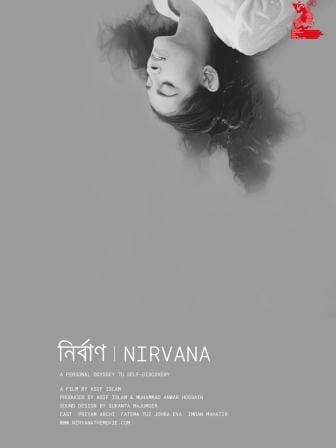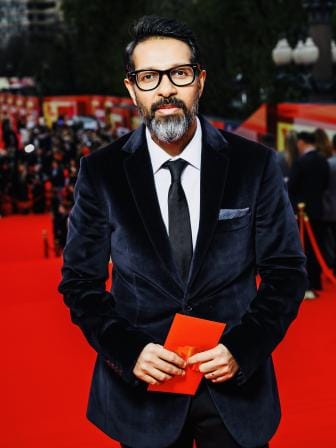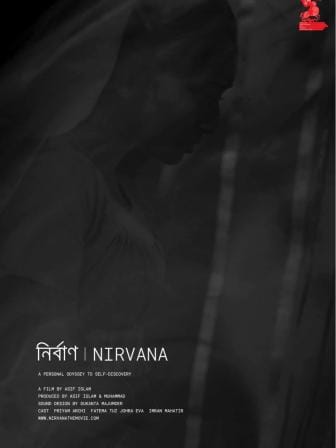‘It was a journey of self-discovery’: Asif Islam on his award-winning debut film

We were sitting in the living room of Bangladeshi filmmaker Asif Islam's apartment after watching his debut film "Nirvana", which had just won the Special Jury award at the 46th Moscow International Film Festival. The lingering heatwave did little to dissipate the serene and evocative effect of the black-and-white silent film, as I bombarded Asif with questions.

Asif is a familiar face in the Bangladeshi media landscape. A freelance director of photography, he has appeared in numerous advertisements. With a background in Graphic Design and Animation and a master's degree in Audio Visual Production, filmmaking is his passion.
For Asif, "Nirvana" was more than just a film—it was a journey of self-discovery. "As a filmmaker, it is like self-discovery," he shared. Despite his extensive experience, Asif relied less on his formal training and more on creative intuition. Several viewers in Moscow likened the film to a painting, and its second screening was sold out. "We didn't have proper lighting; the entire film was made using natural light. We didn't have money, but we had time. We used to wait for the sun to move to a certain angle and then shoot," he explained.

The film's shoestring budget led to creative decisions that ultimately enhanced its impact. Initially, Asif and writer and co-producer Muhammad Anwar Hossain envisioned a colour film, but the cost of maintaining a specific palette was prohibitive. Asif, who also served as the costume designer, noted that recreating sets and providing costumes for extras was financially unfeasible.
Interestingly, "Nirvana" was inspired not by a story but by a location—a family-owned transformer factory in Gazipur. The factory's incessant noise made recording dialogue impractical, steering the film towards its silent nature. The project organically evolved from a three-page screenplay into an 83-minute movie that resembles a picture album.

"At first, we had only one character, Priyam (Archi)," Asif said. "Then we added one or two supporting characters. As we developed these characters, they became more interesting, so we expanded their roles and increased their screen time." The film now portrays the life and inner struggles of three main characters, played by Priyam, Fatema Tuz Zohra Eva, and Imran Mahatir. Actor Satej Chowdhury also plays a significant role, with his story left entirely to the audience's interpretation.
Asif described "Nirvana" as the opposite of a novel, where readers create images in their minds based on words and descriptions. "In our film, you can see the characters, but you don't know exactly what's going on. We had one story in mind, but I don't want to share it. The moment I do, it becomes precise, and I don't want that."
"Nirvana's" journey doesn't end with Moscow. Asif has received offers to screen the film at festivals in Morocco, Spain, London, and India, and he hopes it will be selected for the Rotterdam Film Festival. However, he is hesitant about a commercial release in Bangladesh, as such films appeal to a niche audience. The team aims to make "Nirvana" available on MUBI for Bangladeshi viewers. Asif is also concerned about obtaining a censor certificate for the Dhaka International Film Festival due to the film's LGBTQ themes.

Asif sees this as an exciting time for independent filmmakers in Bangladesh. Bangladeshi movies are gaining global recognition, winning prizes at prestigious festivals like Cannes, Locarno, and Moscow. "In my first interview with the Times of India, they asked why Kolkata isn't winning but Bangladesh is. In my opinion, Bangladeshi filmmakers devote 100 percent passion to their films because they know it's not possible to pay their bills with them at this moment. For everyone, it's a passion project," Asif concluded enthusiastically.
Perhaps this dedication explains why a jury member in Moscow praised the film by repeatedly exclaiming, "Outstanding!"



 For all latest news, follow The Daily Star's Google News channel.
For all latest news, follow The Daily Star's Google News channel.
Comments